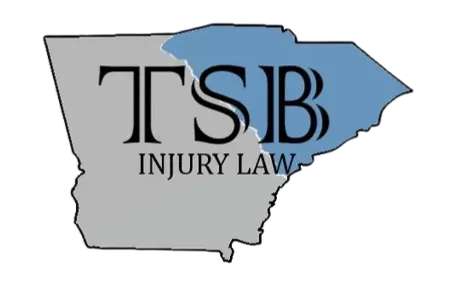In the bustling arteries of South Carolina’s transportation network, the sight of trucks weighed down with goods is a common one. These vehicles, vital for the movement of goods across the state and beyond, form the backbone of commerce. However, amidst routine traffic lies a silent menace – overloaded trucks.
Despite their prevalence, the dangers they pose are often underestimated. Our experienced Aiken truck accident lawyer examine the multifaceted risks associated with overloaded trucks in South Carolina, exploring their impact on safety, infrastructure, and the economy.
The Safety Hazard of Overloaded Trucks
At first glance, an overloaded truck may seem like a mere inconvenience, but beneath its formidable exterior lies a ticking time bomb of safety hazards. One of the most immediate dangers stems from the compromised stability of these vehicles. Exceeding weight limits not only strains the structural integrity of the truck but also dramatically alters its center of gravity, tipping the delicate balance between control and chaos.
This precarious imbalance increases the likelihood of rollovers, especially on curved or uneven terrain where the slightest weight shift can have catastrophic consequences. Moreover, the stress placed on the vehicle’s suspension and braking systems elevates the risk, creating a perfect storm for potential disaster on the roads.
As these overloaded vehicles lumber along roadways, they pose not only a threat to their drivers and passengers but also to anyone unfortunate enough to share the road with them.
Moreover, overloaded trucks face significant challenges in braking effectively. The additional weight puts a strain on braking systems, extending stopping distances and compromising their ability to respond promptly to sudden obstacles or emergencies on the road.
This heightened risk is exacerbated on South Carolina’s highways, characterized by narrow lanes, sharp curves, and unpredictable weather conditions.
The Human Cost
The consequences of accidents involving overloaded trucks extend far beyond mere property damage. Lives are altered, families are shattered, and communities are left reeling in the aftermath.
The devastating long-lasting effects of such collisions can be felt for generations, as the physical, emotional, and financial tolls exact a heavy price. Injuries sustained in these catastrophic encounters can range from broken bones and lacerations to traumatic brain injuries and spinal cord damage, leaving victims and their families grappling with emotional pain and uncertainty.
The aftermath of such accidents is often characterized by a profound sense of loss – loss of mobility, independence, and sometimes even life itself. The psychological trauma endured by survivors can linger long after the physical wounds have healed, casting a shadow over every aspect of their lives.
Furthermore, the loss of life resulting from such accidents is a tragedy that reverberates throughout society. Each casualty represents not just a statistic but a unique individual with dreams, aspirations, and contributions to make.
Regulatory Framework
To mitigate the dangers posed by overloaded trucks, South Carolina must enforce stringent regulations governing truck weights and payloads. Existing laws must be rigorously enforced, with penalties proportional to the severity of violations.
Additionally, periodic inspections and weigh stations should be established along key transportation routes to deter non-compliance and ensure the safety of all road users.
Collaboration between state agencies, law enforcement, and industry stakeholders is essential to address this issue comprehensively.
Educational campaigns aimed at raising awareness among truck operators and businesses about the risks associated with overloading can foster a culture of compliance and responsibility, driving positive behavioral change within the industry.
Economic Implications for Overloading Trucks
Beyond the human toll, overloaded trucks took a heavy toll on South Carolina’s economy, sending shockwaves through its infrastructure and fiscal landscape. The strain they place on the state’s vital transportation networks, particularly roads and bridges, manifests in accelerated wear and tear, creating a cycle of deterioration that demands costly repairs and maintenance.
As these rogue vehicles traverse South Carolina’s highways and byways, their excessive weight takes a toll not only on the immediate surfaces they travel but also on the underlying infrastructure, gradually weakening the very foundation upon which the state’s economic vitality relies.
With each overloaded truck that barrels down its roads, taxpayer dollars, already stretched thin, are further depleted to address the mounting damage inflicted. The funds that could be allocated to bolstering education, healthcare, and other essential public services are instead diverted to the urgent task of repairing these damaged roads.
This diversion of resources not only undermines the state’s ability to invest in its future but also perpetuates a cycle of neglect that threatens to erode its economic competitiveness and prosperity.
As South Carolina grapples with the dual challenges of maintaining its infrastructure and meeting the needs of its citizens, the specter of overloaded trucks looms large, casting a shadow over its economic prospects and underscoring the urgent need for comprehensive solutions to mitigate their impact.
Additionally, the economic repercussions of accidents involving overloaded trucks are staggering. Medical expenses, legal fees, and lost productivity mount rapidly, burdening businesses, insurance companies, and taxpayers alike.
In a state where small businesses form the backbone of the economy, the financial blow dealt by these accidents can be devastating, leading to layoffs, closures, and economic downturns in affected communities.
Contact an Experienced Aiken Truck Accident Lawyer
The dangers of overloaded trucks in South Carolina are not confined to the realm of conjecture; they are a sobering reality with far-reaching consequences. From the inherent safety hazards posed to motorists to the economic strain inflicted on communities, the risks could not be higher.
Give TSB Injury Law a call for a free case review or consultation.



